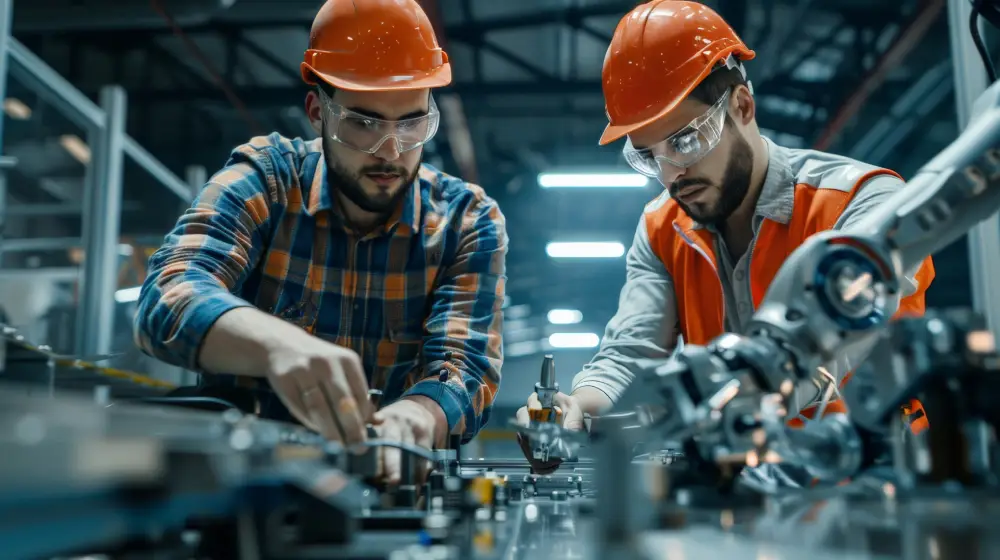Introduction
The efficiency, sustainability, and safety of a building depend significantly on its mechanical, electrical, and plumbing (MEP) systems. Among these, the role of an MEP mechanical engineer is crucial in optimizing building performance through HVAC system design, energy efficiency improvements, and innovative mechanical solutions. As modern construction emphasizes sustainability and efficiency, MEP mechanical engineers are at the forefront of ensuring high-performance buildings.
1. The Role of an MEP Mechanical Engineer in Building Systems
An MEP mechanical engineer specializes in designing, analyzing, and optimizing the mechanical systems that impact a building’s energy consumption, indoor air quality, and overall operational efficiency. Their responsibilities include:
- Designing and implementing efficient HVAC (Heating, Ventilation, and Air Conditioning) systems.
- Ensuring proper airflow, temperature regulation, and thermal comfort.
- Enhancing energy efficiency through innovative mechanical solutions.
- Collaborating with electrical and plumbing engineers for seamless integration of building systems.
- Conducting load calculations to determine system capacities and performance requirements.
- Utilizing building automation and smart technology for better control and monitoring of mechanical systems.
By incorporating these elements into building design, an MEP mechanical engineer ensures that a structure meets modern energy standards while maintaining optimal performance.
2. HVAC System Optimization for Energy Efficiency
One of the key areas where MEP mechanical engineers make an impact is in HVAC system optimization. Since heating and cooling account for a large portion of a building’s energy use, improvements in this area can lead to substantial cost savings and environmental benefits.
Strategies for HVAC Efficiency:
- High-Efficiency HVAC Equipment: Implementing energy-efficient heating and cooling units with advanced technology to reduce energy consumption.
- Variable Air Volume (VAV) Systems: Adjusting airflow based on demand to minimize energy waste.
- Smart Thermostats & Sensors: Using automated controls to optimize temperature settings and reduce unnecessary energy use.
- Geothermal and Solar-Assisted Systems: Integrating renewable energy sources to lower carbon footprint.
- Heat Recovery Ventilation (HRV) and Energy Recovery Ventilation (ERV): Enhancing indoor air quality while minimizing energy loss.
3. Sustainable Mechanical Engineering Solutions
As the construction industry shifts towards sustainability, MEP mechanical engineers play a pivotal role in implementing green building solutions. These include:
- Passive Design Strategies: Utilizing natural ventilation and thermal mass to reduce reliance on mechanical heating and cooling.
- Energy-Efficient Insulation Materials: Enhancing the building envelope to maintain stable indoor temperatures.
- Water Conservation through Mechanical Systems: Designing efficient water heating and cooling solutions to minimize waste.
- Integration of Building Automation Systems (BAS): Automating mechanical systems to optimize performance and reduce energy waste.
By incorporating these strategies, an MEP mechanical engineer ensures that a building adheres to green construction standards such as LEED, BREEAM, and WELL certifications.
4. Improving Indoor Air Quality and Occupant Comfort
Beyond energy efficiency, mechanical engineers also focus on enhancing indoor air quality (IAQ) and occupant comfort. Poor IAQ can lead to health issues and reduced productivity, making proper ventilation and filtration critical.
Key Considerations for IAQ Improvement:
- Advanced Air Filtration Systems: Incorporating HEPA and UV-C filters to remove pollutants and airborne contaminants.
- Demand-Controlled Ventilation (DCV): Adjusting ventilation rates based on occupancy levels to optimize air exchange.
- Humidity Control Solutions: Preventing mold growth and ensuring a comfortable indoor environment through dehumidification systems.
- Zonal HVAC Systems: Allowing individualized temperature control for different building areas to enhance comfort.
5. Mechanical Engineers and Smart Building Technologies
With advancements in smart building technologies, MEP mechanical engineers are leveraging data-driven solutions to improve building performance. Some innovations include:
- IoT-Enabled HVAC Systems: Allowing real-time monitoring and predictive maintenance to enhance system longevity.
- Artificial Intelligence (AI) in Mechanical Engineering: Using AI algorithms to optimize mechanical system performance based on occupancy patterns and weather conditions.
- Digital Twin Technology: Creating virtual replicas of mechanical systems for simulation and performance analysis.
- Smart Water Management Systems: Implementing automated leak detection and water usage monitoring to reduce waste.
By integrating these technologies, mechanical engineers ensure that buildings are more responsive, adaptive, and efficient in the long term.
6. Challenges Faced by MEP Mechanical Engineers
Despite their crucial role in building performance, MEP mechanical engineers encounter several challenges, including:
- Rising Energy Costs: Balancing energy efficiency with cost-effective solutions.
- Regulatory Compliance: Adhering to constantly evolving building codes and sustainability standards.
- Technological Adaptation: Keeping up with rapid advancements in smart building systems.
- Coordination with Other Disciplines: Ensuring seamless integration between mechanical, electrical, and plumbing systems.
- Budget Constraints: Implementing high-efficiency solutions within financial limitations.
Addressing these challenges requires innovative problem-solving, continuous learning, and collaboration among all construction stakeholders.
Conclusion
An MEP mechanical engineer is integral to improving building performance, from optimizing HVAC systems to integrating smart technologies and sustainable solutions. By focusing on energy efficiency, indoor air quality, and innovative mechanical design, these professionals contribute to constructing high-performance buildings that meet modern demands for sustainability and efficiency. As the construction industry evolves, the role of MEP mechanical engineers will continue to expand, shaping the future of smarter, greener, and more efficient buildings.

